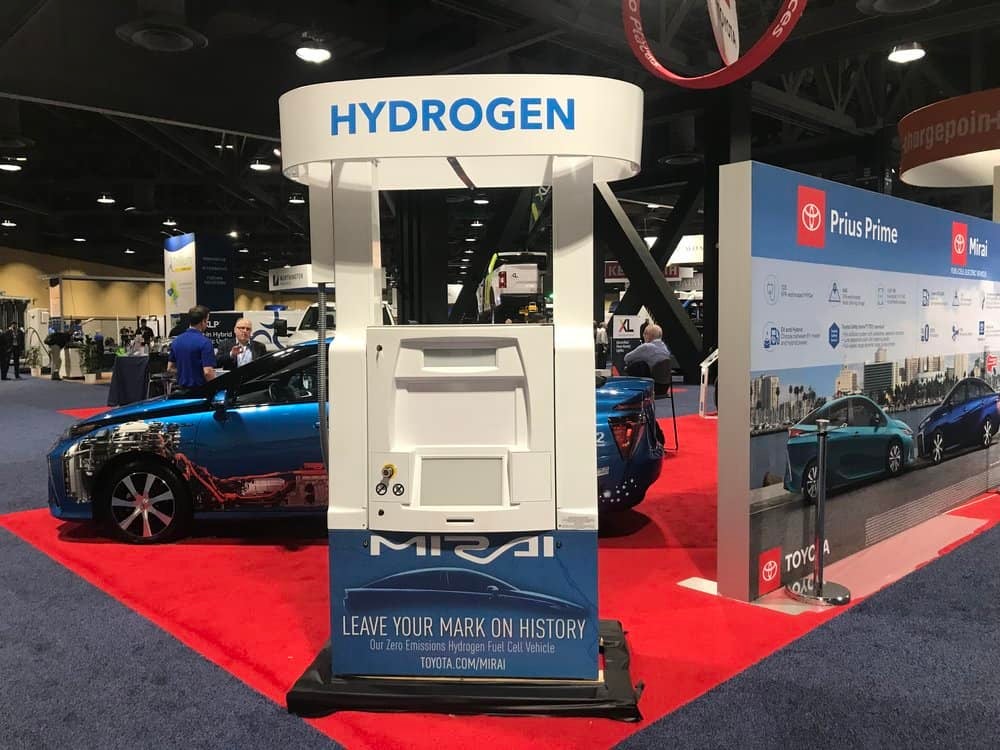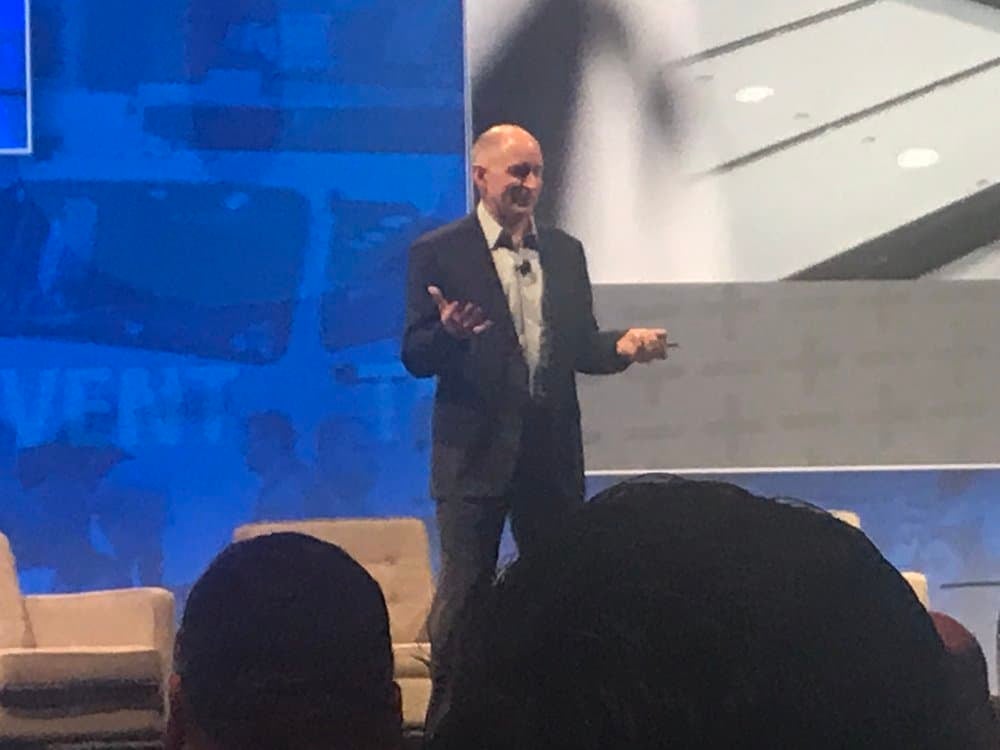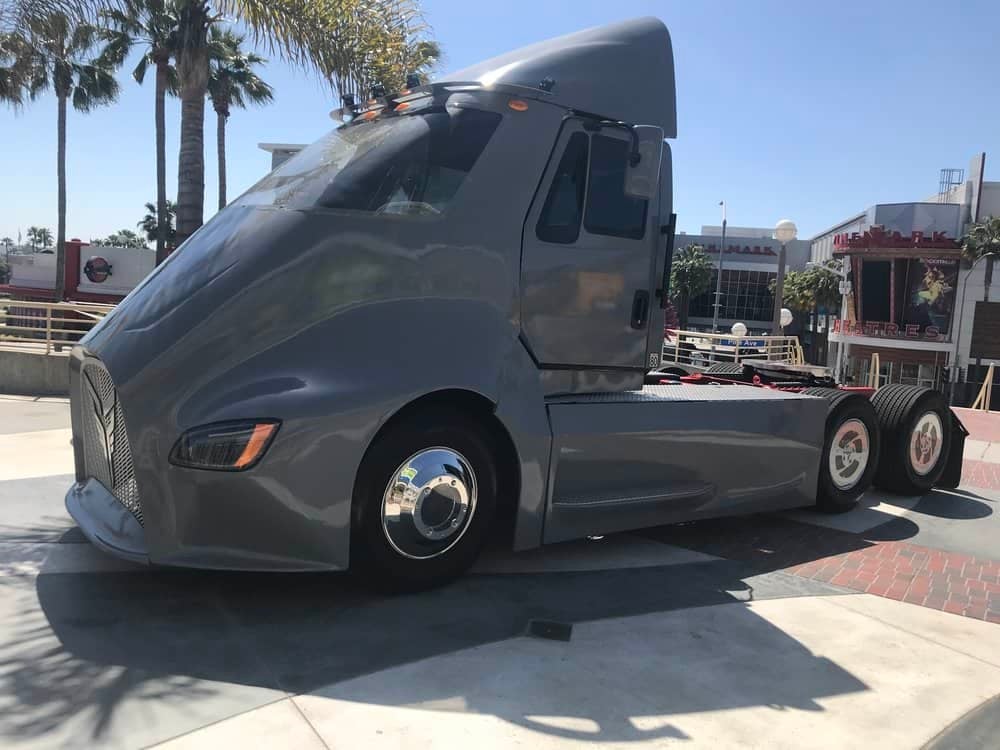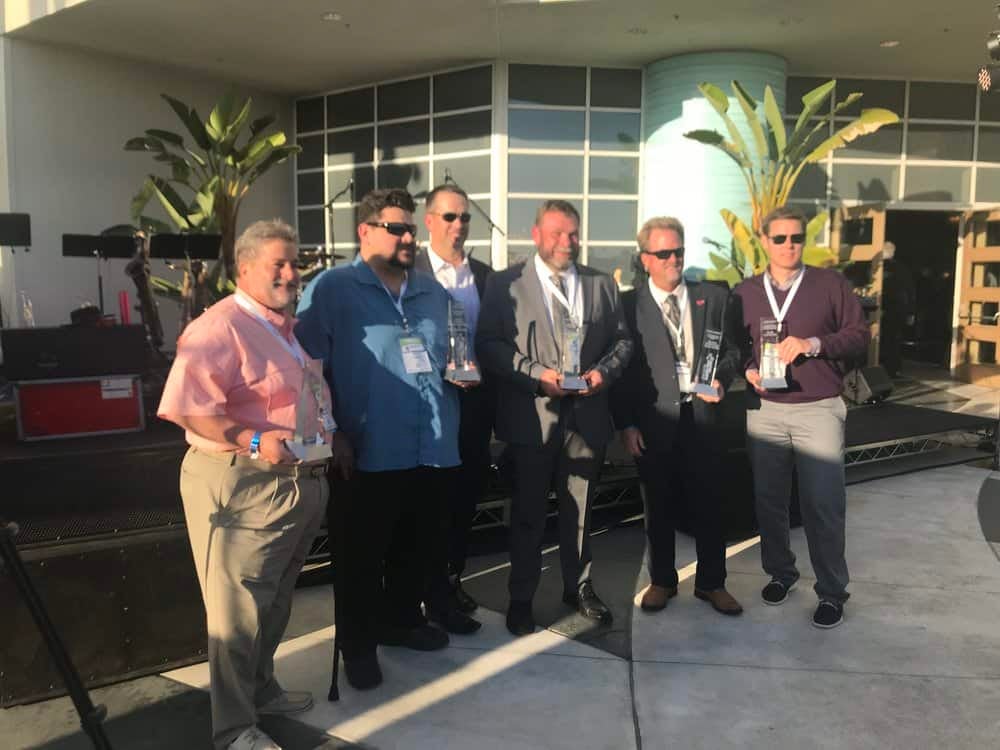
Billions of dollars are at stake as trucking prepares to build a cleaner future, a potential windfall that is fueling a longstanding debate over hydrogen vs. electric.
The rivalry between the two well-funded camps was brought into sharp relief during the industry’s Advanced Clean Transportation Expo, where a vigorous defense by both sides – along with a few choice insults – informed many of the panel presentations and trade show spiels.
On Monday April 22 Chris Cannon, the director of environmental management for the Port of Los Angeles, stood inside a tent located at Berth 46 and explained why he was so excited about the agency’s “Shore to Store” project, a zero emissions initiative that includes the deployment of 10 Kenworth Toyota hydrogen-electric heavy duty trucks.
“We are excited because it allows us to use hydrogen,” said Cannon, who delivered his presentation during a kickoff event for the ACT conference and trade show that took place last week in Long Beach, California.
Among the benefits of hydrogen-powered vehicles, he said, is the range – “much more than battery electric trucks.” Another advantage is that it takes the same amount of time to fuel up a hydrogen truck as it does a diesel vehicle. (Electric vehicles take a comparatively long time to charge.)
After the talk, a reporter asked Cannon if the Port was endorsing hydrogen over other options, at which point the Port director moderated his tone. “The Port of LA’s official position is that we are fuel neutral,” he said. Hydrogen fuel cell equipment is more expensive than battery electric, he conceded, and among other demonstrations the Port is working with Daimler Trucks North America and Volvo on electrification projects.
“We want to provide opportunities to test technologies,” Cannon concluded. “May the best technology win.”
With billions of dollars in potential sales and incentives at stake – the Kenworth project is funded in part by a $41 million grant from the California Air Resources Board – startups and big trucking manufacturers alike are racing to develop what they hope will be the winning zero emissions fuel technology.
In his keynote speech, Daimler Trucks CEO Roger Nielsen drew a line in the sand, saying, “The road to emissions-free transportation is going to be driven with battery-electric vehicles. I believe the future is electric.” Nielsen said he can “see a glimpse of fuel cells on the horizon. But it will not be this generation of engineers who will be delivering it.”
During a panel discussion immediately following the keynote, Nikola Motor CEO Trevor Milton delivered a rejoinder: “Battery electric is a great feature, but what we found is 80 percent of our sales are all hydrogen.” (Nikola debuted its hydrogen-electric semi-trucks a couple of weeks ago in a splashy event called Nikola World.)
Speaking at a forum on fleet applications in light and medium urban mobility, Toyota engineer Dallas Fox ticked off a list of reasons why the manufacturer’s fuel cell vehicles were “the best suited for zero emissions” – no change in fueling behavior, a fast refueling time and better cold weather performance than electric.
Toyota sells the hydrogen-powered Mirai sedan in California, and has scaled up that technology in its hydrogen-electric truck models.
The back and forth extended into off-hours. During an evening reception, a young engineer employed by a fleet tracking company said her goal in college was to work on hydrogen technology. “But the hydrogen revolution never panned out the way people said it would,” she noted.
So now she’s working, happily, on EV solutions. Nobody knew how quickly battery technology would improve, observed her colleague, a data scientist.
Meanwhile, across the table, Daljit Bawa, market manager for Ballard Power Systems, a fuel cell solutions provider, lamented the rhetoric of a certain electric vehicle company.
“They promise you the moon,” he said.

ACT Expo attracted several thousand scientists, technologists, business and public policy leaders who are dedicating their passion and brain power to finding a commercially viable clean fuel that can replace diesel, the primary contributor to transportation greenhouse gas emissions and smog particulate matter.
The specter of climate change hovered over the conference and trade show displays, and if the narrative arc tended to pit electric and hydrogen interests against one another there were also moments of detente.
With notable exceptions, experts in both camps agreed on the basic balance of power. Battery electric vehicles are the preferred solution for short haul; hydrogen for long haul. Hydrogen (fuel cells and fuel alike) is far more expensive than EVs, and the fueling infrastructure is in its infancy compared to electric.
All the major manufacturers are investing in electric trucks. Just last week Ford announced an investment of $500 million into electric truck startup Rivian.

Hydrogen has yet to get the same traction, although high profile startups like Nikola Motor have attracted the attention of brands like Anheuser-Busch; the beer giant last year placed an order for close to 800 Nikola hydrogen-electric semis.
Funding was another point of intersection. With diesel still winning the business case, money – public money, to be precise – remains the key to unlocking technology innovation and market transformation.
“Unfortunately, there is no business case for a sane and sober customer to buy battery electric trucks,” said Nielsen. “In the interim we need financial incentives and government industry partnerships in order to scale up.”
NFI Industries president Ike Brown echoed that assertion. “Right now an electric truck does not make economic sense,” he said during ACT’s keynote panel discussion. “We’re taking full advantage of every incentive we see in the marketplace.”
The trucking industry’s pursuit of clean fuel subsidies might seem odd in a sector known for opposing the heavy hand of government regulations. Size and market niche explains some of the disconnect. The big truck manufacturers and startups tend to favor regulation (which offers market consistency), while carriers, especially smaller trucking outfits, don’t. Companies are also hedging against variable diesel costs and future regulatons by helping shape technology ahead of time.
As the nation’s undisputed clean fuels leader, California was the star of the show, with manufacturers lining up to pay their respects to agencies like the Air Resources Board, the Southern California Air Quality Improvement District and the California Clean Investments program, a pot of money that uses cap-and-trade funds to pay for emissions reductions projects.
During one press conference held in the Volvo booth, the Air Resources Board presented a $44.8 million check to the South Coast district for the Volvo Low Impact Green Heavy Transport Solutions (LIGHTS) project.The electrification initiative is designed to boost freight and warehouse efficiencies, reduce emissions and improve air quality.
Peter Voorhoeve, president of Volvo Trucks North America, said the public-private partnership “will enable us to demonstrate the benefits of working with an interconnected team of fleets, private electric infrastructure companies and governmental agencies to help achieve real-life insights to introduce and scale fully electric transport solutions.”
Separately, CARB spokesperson David Clegern told FreightWaves in an email that California offers subsidies for both hydrogen and battery electric, and that much of the money comes out of the same funding source,. “We don’t favor one over the other,” Clegern said.

On the last day of the conference, an attendee stopped by a reporter’s desk at the media center in the convention hall.
“Fool cells,” he said, using the pejorative term for fuel cells popularized by Elon Musk. “Commercial trucking is always about the business case,” said the trucking company employee, who declined to be identified by name for this article, “and hydrogen costs around $6 [per gallon]. It’s all about the math.”
Electric vehicles, he added, “make the grid cleaner,” a reference to a commonly held view that electric vehicles can help transition the grid to renewable sources of energy, which could be stored in car batteries and then fed back to the utility.
Another conference participant employed by a large shipper overheard the conversation and begged to differ. (He too declined to be identified by name or company affiliation.) Everything people say about electric vehicles and the grid you can say about hydrogen, he asserted.
Like others at the Expo, he was bemused by the electric-hydrogen one-upmanship. One of the consequences, he said, is that other zero or near zero emissions options seemed to fall by the wayside.
The conference and trade show floor featured numerous workshops and vehicles showcasing other energy sources: next generation biofuels, propane, compressed natural gas (CNG) and renewable natural gas (RNG). The six winners of the annual ACT Fleet Awards – handed out during an evening reception – included San Diego Metro Transit, an agency that deploys 100 percent propane buses, and Dillon Logistics and Matheson, both recognized for their CNG fleets.
The awards honored organizations and companies that “know the challenges and are applying these technologies,” said Erik Neandros, emcee and CEO of Gladstein, Neandross & Associates, the firm that produced and marketed ACTExpo.

Still, it was hard to argue with the fact that alternatives seemed to be getting short shrift.
Another concern, as more than a few attendees and speakers noted, is that the not-always-friendly hydrogen-electric competition distracted attention from the common goal – to find many winning solutions, not one.
“There’s a battle between these technologies,” said Steve Ellis, manager for fuel cell vehicle marketing at Honda, during a panel presentation. “But the issue should be getting to zero emissions. That’s my soapbox.”
Even Milton struck a conciliatory tone: “The issue isn’t whether hydrogen, whether battery. Emissions are the enemy.”
But a few minutes earlier, he was back on message. “You put 100 electric trucks in a city,” said Milton, referring to the burden on the grid, “and you’ll bring it to its knees.”











Brent Hettick
This is misleading: ” All the major manufacturers are investing in electric trucks. Just last week Ford announced an investment of $500 million into electric truck startup Rivian. ” The “trucks” are pick ups, not HD vehicles…